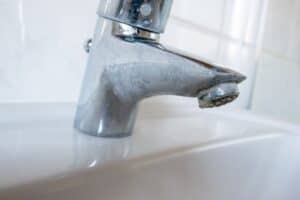Experts are raising doubts about South Africa's ability to achieve its sustainable development goals by 2030.

Against a background of South Africa’s glaring weaknesses in several areas of service delivery – hindered by inefficiencies and corruption – experts have expressed scepticism in the country achieving the global 2030 agenda for its sustainable development goal (SDG).
Analysts yesterday commented on the joint 2022 report by the World Health Organisation, UN Children’s Fund and Joint Monitoring Programme on water, sanitation and hygiene (Wash).
Among its findings, the report said:
- For the world to achieving SDG Wash targets by 2030, it would require a three to sixfold increase in current rates.
- One in four people lacked safely managed drinking water, and regional coverage varied widely.
- Two out of five people lacked safely managed sanitation, and regional coverage varied widely.
- Only 135 countries had estimates for safely managed sanitation services.
- One in four people lacked basic hygiene services, with four SDG regions having insufficient data.
- Only 84 countries had estimates available for basic hygiene services.
- Adolescent girls and women in most countries had access to materials and a private place to wash and change, but often did not participate in school, work and social activities during menstruation.
The report said: “Data for the corresponding global indicators are now available for more than 50% of the world’s population, but as we approach the mid-point of the SDG period, the world is not on track to achieve SDG targets.
“Achieving universal coverage by 2030, will require a sixfold increase in current rates of progress for safely managed drinking water – a fivefold increase.
“The importance of progress on drinking water, sanitation and hygiene for achieving SDG 5, which aims to realise gender equality – empowering all women and girls – is widely recognised.
“Likewise, gender inequalities impede realisation of the SDG 6 targets on Wash.”
The report also pointed to:
- An estimated 1.8 billion people collect drinking water from supplies located off premises, with women and girls being primarily responsible for water collection.
- In almost all countries with comparable data, the burden of water carriage remains significantly heavier for women and girls than for men and boys.
- Over 0.5 billion people share sanitation facilities with other households, with data showing women are more likely than men, to feel unsafe walking alone after dark.
- Lack of handwashing facilities disproportionately impacts adolescent girls and women, primarily responsible for child care and domestic chores in many countries around the world.
- Inadequate Wash services limit the ability of adolescent girls and women to safely and privately manage their periods.
Water and sanitation expert Anthony Turton said: “Given the reality of our failing state, I cannot see that South Africa is capable of achieving the 2030 targets. They are simply unrealistic in the context of our home truth.
“Our wastewater systems are failing and our potable systems are unable to cope.
“These are technically complex issues and we have lost the skills and the coherent leadership needed to address these matters.
“We are now in survival mode, whereas the global goals are aspirational and laudable, but unrealistic in the context of state failure.”
Rural Health Advocacy Project executive director Russell Rensburg said: “The fiscal outlook between now and 2030 is incredibly uncertain. Given many competing infrastructure priorities, it is unlikely that we will see much improvement on our current status.
“While South Africa does well on access, there are still pockets of non-delivery, with indicators not telling the full story.
“Often, access to a communal tap or ablution facilities – particularly in rural areas – would not be considered on par with urban access.”
Support Local Journalism
Add The Citizen as a Preferred Source on Google and follow us on Google News to see more of our trusted reporting in Google News and Top Stories.






